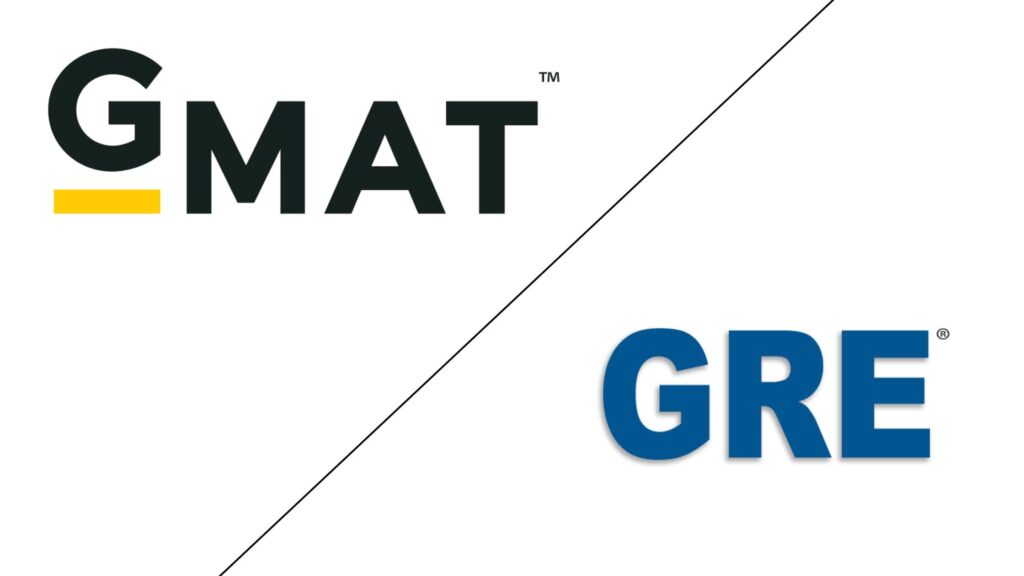The Graduate Management Admission Test (GMAT) is a standardized exam that is widely recognized and used for admissions into graduate management programs, such as MBA programs. In this comprehensive guide, we will explore everything you need to know about the GMAT exam, from its purpose and structure to tips for preparing and succeeding on the test.
Table Of Contents:
- Introduction to the GMAT Exam
- GMAT Test Format and Timing
- GMAT Preparation Tips and Resources
- Strategies for Each GMAT Section
- Interpreting GMAT Scores
- GMAT vs. GRE: Choosing the Right Exam
- Career Planning and Assessment For GMAT
- Conclusion and Final Thoughts
Introduction to the GMAT Exam

Definition and purpose of the GMAT
The Graduate Management Admission Test (GMAT) is a standardized exam specifically designed to assess the aptitude of candidates seeking admission into graduate management programs, such as MBA programs. The GMAT is administered by the Graduate Management Admission Council (GMAC) and is widely recognized by universities and business schools around the world. The purpose of the GMAT is to evaluate an individual’s skills in critical thinking, analytical writing, problem-solving, and data interpretation. The exam aims to provide a standardized measure of an applicant’s readiness for the academic rigors of graduate management studies and serves as an essential component of the admissions process for many business schools.
Importance of the GMAT in graduate management admissions
The GMAT plays a crucial role in assessing a candidate’s readiness and aptitude for business school. With its comprehensive test preparation resources and personalized guidance, Vati aims to support individuals in achieving their best performance on the GMAT. Vati, a leading career planning and assessment platform, recognizes the importance of the GMAT in graduate management admissions. By leveraging Vati’s advanced career assessment tools, students can identify their strengths and weaknesses, align their career goals with their performance on the GMAT, and gain a competitive edge in the admissions process. Vati’s innovative platform empowers aspiring business leaders to make informed decisions and maximize their chances of success in their graduate management journey.
Overview of the sections and scoring of the GMAT
The GMAT consists of four main sections:
Analytical Writing Assessment (AWA) -The AWA section assesses the test taker’s ability to analyze and communicate their ideas effectively.
Integrated Reasoning (IR) – The IR section evaluates the candidate’s skills in data interpretation and critical thinking.
Quantitative Reasoning– The Quantitative Reasoning section tests mathematical and problem-solving abilities
Verbal Reasoning – While the Verbal Reasoning section assesses reading comprehension, critical reasoning, and sentence correction skills.
Each section is scored separately, and the scores are combined to calculate the overall GMAT score, ranging from 200 to 800. The GMAT scoring system provides an objective measure of a candidate’s abilities across different skill areas.
GMAT Test Format and Timing

Detailed breakdown of the exam structure and timing for each section
The GMAT is a computer-adaptive test that follows a specific structure and timing for each section. The Analytical Writing Assessment (AWA) section allows 30 minutes for writing one essay. The Integrated Reasoning (IR) section provides 30 minutes to answer 12 questions related to data interpretation and reasoning. The Quantitative Reasoning section consists of 31 multiple-choice questions to be completed in 62 minutes, testing math and problem-solving skills. The Verbal Reasoning section includes 36 multiple-choice questions to be answered within 65 minutes, focusing on reading comprehension, critical reasoning, and sentence correction. Understanding the exam structure and timing is crucial for effective time management and optimal performance on the GMAT.
Strategies for managing time effectively during the test
Managing time effectively during the GMAT is crucial for maximizing your performance. One strategy is to create a plan before the exam, allocating specific time frames for each section. Prioritize questions based on difficulty and importance, tackling easier ones first to build confidence and save time. Additionally, practice time management during your GMAT preparation by simulating real test conditions. Familiarize yourself with the pacing and timing of each section to improve your speed and accuracy. Use the on-screen timer as a guide to monitor your progress and make adjustments if necessary. By implementing these strategies, you can optimize your time utilization and enhance your overall performance on the GMAT.
GMAT Preparation Tips and Resources

Importance of preparation for the GMAT
Preparation is key to achieving success in the GMAT. The exam is challenging and requires a comprehensive understanding of the test format, question types, and content. Adequate preparation allows you to familiarize yourself with the exam structure, practice time management, and develop effective strategies for each section. It helps build confidence, reduces test anxiety, and improves performance. Proper preparation includes studying the relevant concepts, practicing with sample questions and mock exams, and seeking guidance from GMAT resources or professional tutors. By investing time and effort in your GMAT preparation, you increase your chances of achieving a high score and gaining admission to your desired graduate management program.
Recommended study materials and resources
When preparing for the GMAT, it’s important to utilize high-quality study materials and resources. There are several reputable options available, including official GMAT guides, online prep courses, practice tests, and study books from trusted publishers. Official GMAT guides provide authentic questions and valuable insights into the exam. Online prep courses offer comprehensive study plans, interactive lessons, and personalized feedback. Practice tests help familiarize you with the exam format and assess your progress. Additionally, there are numerous online forums, blogs, and video tutorials where you can find helpful tips and strategies from experienced test-takers. Selecting the right study materials and resources tailored to your learning style is essential for effective GMAT preparation.
Strategies for creating a study plan and managing study time effectively
Creating a well-structured study plan is crucial for effective GMAT preparation. Start by assessing your strengths and weaknesses in each section of the exam, and allocate more time to areas that require improvement. Set realistic goals and break down your study plan into smaller, manageable tasks. Establish a consistent study schedule and allocate specific time slots for each section. Create a conducive study environment free from distractions. Utilize study aids, such as flashcards and mnemonic devices, to reinforce key concepts. Regularly review and revise your study plan to track progress and make necessary adjustments. Effective time management and a disciplined approach to studying will help you maximize your GMAT preparation.
Strategies for Each GMAT Section

Tips and techniques for approaching the AWA, IR, QR, and VR sections
When approaching the Analytical Writing Assessment (AWA) section, focus on developing a clear and concise argument, supported by relevant examples and evidence. Practice outlining your essay and time management to ensure a well-structured response. In the Integrated Reasoning (IR) section, practice data interpretation and make use of the provided tools to organize and analyze information efficiently. For the Quantitative Reasoning (QR) section, brush up on fundamental math concepts and practice solving problems under time constraints. In the Verbal Reasoning (VR) section, work on improving reading comprehension and critical reasoning skills. Develop strategies for identifying main ideas, analyzing arguments, and managing time effectively in each section.
Recommended study strategies and practice exercises
To effectively prepare for the GMAT, adopt a combination of study strategies. Start by familiarizing yourself with the exam structure and content, then create a study schedule that allows for consistent and focused practice. Utilize official GMAT study materials and resources, such as practice exams and question banks, to simulate the test-taking experience. Additionally, consider joining study groups or seeking guidance from online forums and GMAT prep courses. Regularly review and analyze your performance to identify areas of improvement. Incorporate timed practice exercises to enhance your speed and accuracy. Balancing content review, practice, and targeted study strategies will maximize your preparation for the GMAT.
Interpreting GMAT Scores

Understanding the scoring scale and percentiles
The GMAT is scored on a scale of 200 to 800, with separate scores provided for the Verbal Reasoning and Quantitative Reasoning sections. The Analytical Writing Assessment section is scored separately on a scale of 0 to 6, and the Integrated Reasoning section is scored on a scale of 1 to 8. In addition to the scaled scores, percentile rankings are provided, indicating the percentage of test takers you scored higher than. Understanding the scoring scale and percentiles is important as it allows you to assess your performance relative to other test takers and gauge your competitiveness for admission to business schools.
How GMAT scores are used by graduate management programs
GMAT scores play a crucial role in the admissions process for graduate management programs. Business schools use GMAT scores as one of the factors to assess an applicant’s aptitude for the rigors of the program. A higher GMAT score often demonstrates strong analytical, quantitative, and verbal skills, which are essential for success in business school. Admissions committees consider GMAT scores alongside other application components, such as academic records, work experience, essays, and recommendations. While GMAT scores are not the sole determining factor for admission, they provide an objective measure for schools to evaluate candidates and make informed decisions about their suitability for the program.
GMAT vs. GRE: Choosing the Right Exam

Comparison of the GMAT and GRE exams
The GMAT and GRE exams are both widely accepted by graduate programs, including business schools. While the GMAT is specifically designed for business school admissions, the GRE is a more general test accepted by a wide range of graduate programs. The GMAT focuses on assessing analytical writing, integrated reasoning, quantitative, and verbal reasoning skills, while the GRE includes sections on analytical writing, verbal reasoning, and quantitative reasoning. The GMAT places more emphasis on data sufficiency and problem-solving, while the GRE has more focus on vocabulary and reading comprehension. Ultimately, the choice between the GMAT and GRE depends on the specific requirements of the program you are applying to.
Factors to consider when deciding which exam to take
When deciding between the GMAT and GRE exams, there are several factors to consider. First, check the requirements of the graduate programs you are interested in to see if they accept both exams or have a preference for one over the other. Consider your strengths and weaknesses in terms of the exam content. If you excel in quantitative reasoning, the GMAT may be a better fit, while strong verbal and analytical writing skills may make the GRE a more suitable choice. Additionally, think about your future career goals and whether the GMAT is specifically required or preferred in your desired industry. Finally, consider the study resources and preparation materials available for each exam to ensure you have access to the necessary resources.
Career Planning and Assessment For GMAT
How career planning and assessment can be used in GMAT scores.
Career planning and assessment can be used to leverage GMAT scores in several ways. Firstly, it helps individuals understand how their GMAT scores align with the requirements of their desired career path. By identifying the target GMAT score range for specific business schools or programs, individuals can set realistic goals and focus their preparation efforts accordingly. Additionally, career planning and assessment can highlight the skills and competencies that are valued in the business world, enabling test-takers to prioritize their study areas and enhance their performance. Moreover, career planning can guide individuals in selecting the most suitable business schools based on their GMAT scores and career goals, ensuring a better alignment between their education and future career prospects.
Exploring the link between GMAT performance and success in graduate management programs
There is a strong link between GMAT performance and success in graduate management programs. A high GMAT score is often considered an indicator of a candidate’s analytical, critical thinking, and problem-solving abilities, which are crucial skills for success in business and management fields. Graduate management programs use GMAT scores as a benchmark to assess an applicant’s potential to thrive in their programs. A strong GMAT performance can enhance a candidate’s chances of securing admission to prestigious business schools and can also open doors to scholarships and other opportunities. Therefore, it is important for aspiring students to prepare diligently for the GMAT exam to maximize their chances of success in graduate management programs.
Conclusion and Final Thoughts
Recap of key points and takeaways from the guide
In this guide, we have explored the importance of the GMAT exam in graduate management admissions and its role in career planning and assessment. We discussed the definition and purpose of the GMAT, the exam’s structure, scoring, and timing. We provided tips and strategies for effective time management, preparation, and study materials. We also compared the GMAT with the GRE exam and highlighted factors to consider when deciding which exam to take. Moreover, we examined the link between GMAT performance and success in graduate management programs. Overall, understanding the GMAT and incorporating it into your career planning and assessment can significantly impact your chances of success in the field of business and management.
By the end of this blog, readers will have a comprehensive understanding of the GMAT exam and be equipped with valuable insights and strategies for success. Whether you are considering pursuing a graduate management program or simply want to learn more about the GMAT, this guide will provide you with the knowledge and resources you need to navigate the exam with confidence.





